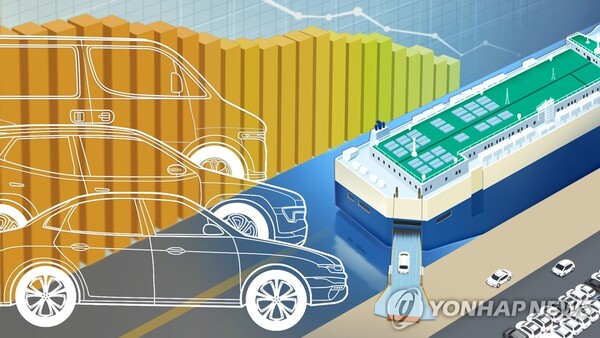South Korea's car exports moved up 9.5 percent on-year in September on the back of stronger demand for eco-friendly cars, including electric vehicles (EVs) and hydrogen models, the industry ministry said Wednesday.
The combined value of car exports reached US$5.23 billion in September, compared with $4.78 billion tallied a year earlier, according to data from the Ministry of Trade, Industry and Energy.
Auto exports have logged on-year growth for 15 consecutive months up to September. During the first nine months of 2023, auto exports surged 35.8 percent on-year to $52 billion.

North America was the No. 1 export destination for South Korean cars last month, with sales rising 22.7 percent to $2.77 billion.
Shipments to the European Union surged 12.5 percent to $849 million, and those to Asian nations increased by 1.6 percent to $436 million.
Exports to the Middle East, on the other hand, fell 15.3 percent to $350 million.
The overall growth was mainly led by the stronger demand for eco-friendly models, with those exports soaring 23.3 percent on-year to reach $1.74 billion in September.
In terms of numbers, South Korea shipped 197,770 units of automobiles in September, up 1.3 percent on-year. Eco-friendly models accounted for 54,000 units, up 10.2 percent over the period.
The industry ministry attributed the sharp growth in the sales of eco-friendly cars to rental firms enjoying a tax benefit under the U.S. Inflation Reduction Act (IRA).
The IRA offers tax credits of up to $7,500 to each buyer of a new EV assembled in North America and with batteries made of a certain amount of critical minerals produced in the region, but those conditions do not apply to commercial vehicles.
Domestic production, meanwhile, decreased 1.9 percent on-year in September to 301,799 units in September, due to a partial strike by some carmakers and auto parts suppliers.
Domestic sales also moved down 4.7 percent on-year to reach 133,709 units, apparently as some consumers of EVs delayed their purchases in anticipation of potential increases in related subsidies.

